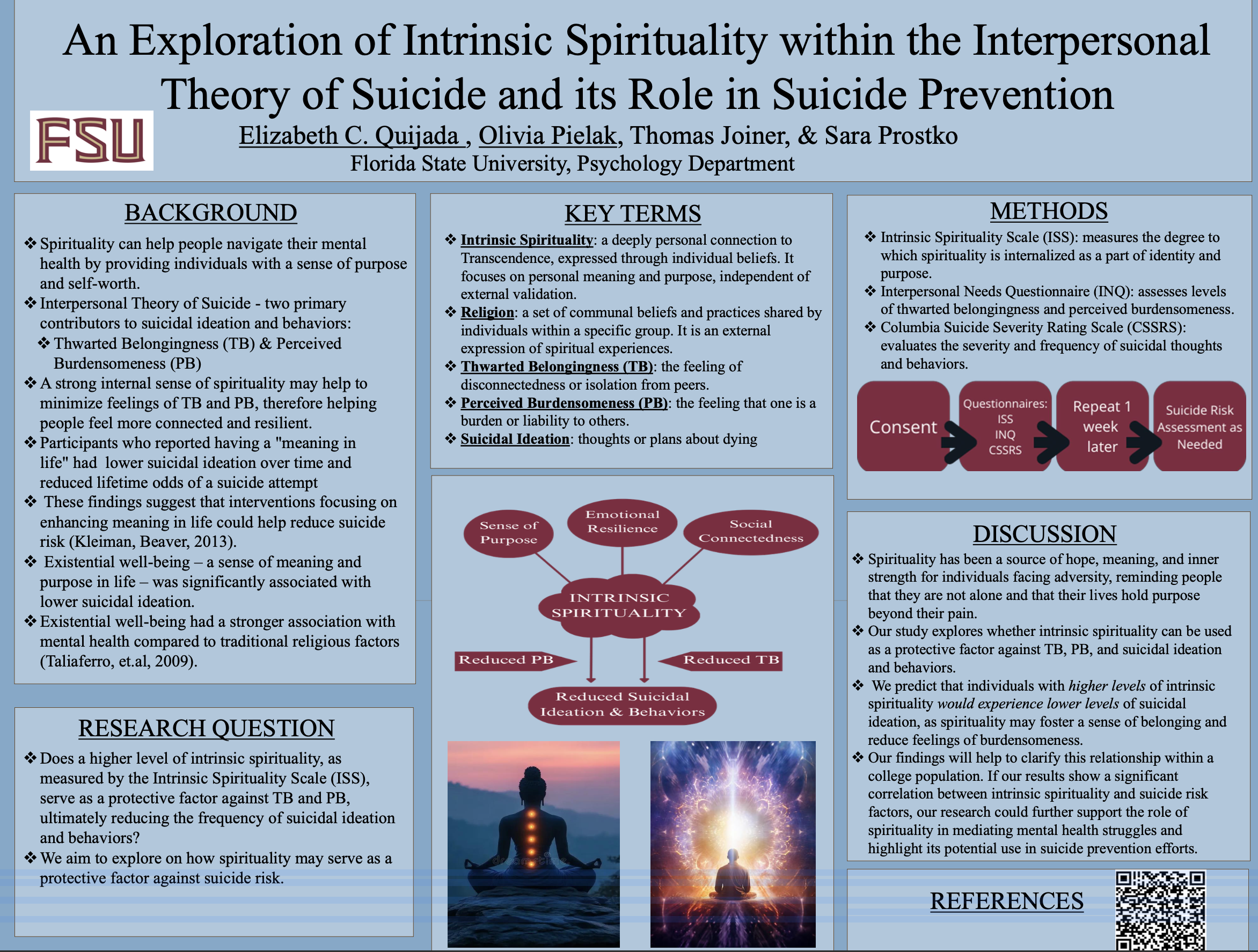Research Symposium
25th annual Undergraduate Research Symposium, April 1, 2025
Elizabeth Quijada Poster Session 3: 1:45 pm - 2:45 pm/ Poster #4

BIO
My name is Elizabeth Quijada, I was born in Venezuela but grew up in Miami, where I was exposed to diverse cultures and perspectives that shaped my passion for psychology. From a young age, I was fascinated by the complexities of human behavior, why we think, feel, and act the way we do. This curiosity led me to explore various aspects of psychology, particularly the ways in which our experiences and environments influence our decision making and well-being. As I pursued my studies, I developed a strong interest in addiction and rehabilitation, recognizing the profound impact that substance use disorders have on individuals and communities. Through research, I hope to contribute to advancements that improve recovery outcomes and help shape policies that promote more compassionate approaches to addiction treatment. I am excited to continue expanding my knowledge and gaining experience in the field, deepening my understanding of human behavior and the factors that influence mental health and recovery.
An Exploration of Intrinsic Spirituality within the Interpersonal Theory of Suicide and its Role in Suicide Prevention
Authors: Elizabeth Quijada, Sara ProstkoStudent Major: Psychology
Mentor: Sara Prostko
Mentor's Department: Psychology Mentor's College: College of Arts and Sciences Co-Presenters: Olivia Pielak
Abstract
Emerging evidence has suggested that spirituality, especially when internalized as an intrinsic value, plays a significant role in mental health resilience. The intrinsic spirituality construct represents a deep, personal belief in spiritual guidance and meaning in life that is not contingent on external aspects or validation. Prior studies have highlighted that spirituality can offer a sense of purpose, fostering inclusion that can enhance adaptive coping strategies in times of stress. Thwarted belongingness (TB), feelings of alienation and social disconnection, and perceived burdensomeness (PB), belief of being a liability to society and feelings of self-hatred have been linked to suicidal thoughts and behaviors via the Interpersonal Theory of Suicide (Joiner, 2005). Although past research has concentrated on risk factors for suicide, new research suggests that enhanced spiritual beliefs and practices can moderate the association between social disconnection and suicidal outcomes. Notably, studies such as those by Kleiman and Beaver (2013) and Taliaferro, et.al (2009) have underscored the beneficial role of spirituality in reducing psychological distress and suicide risk. This study aims to demonstrate how individuals with higher levels of intrinsic spirituality, measured by the Intrinsic Spirituality Scale (ISS), exhibit stronger protective factors against TB and PB, leading to lower frequencies of suicidal ideation and behaviors. Participants will complete two sessions about one week apart where they complete questionnaires on intrinsic spirituality, TB, PB, and suicidal thoughts and behaviors. We expect for higher levels of intrinsic spirituality to protect against TB, PB, and suicidal thoughts and behaviors.
Keywords: Spirituality, Risk Reduction, Interpersonal Theory of Suicide


